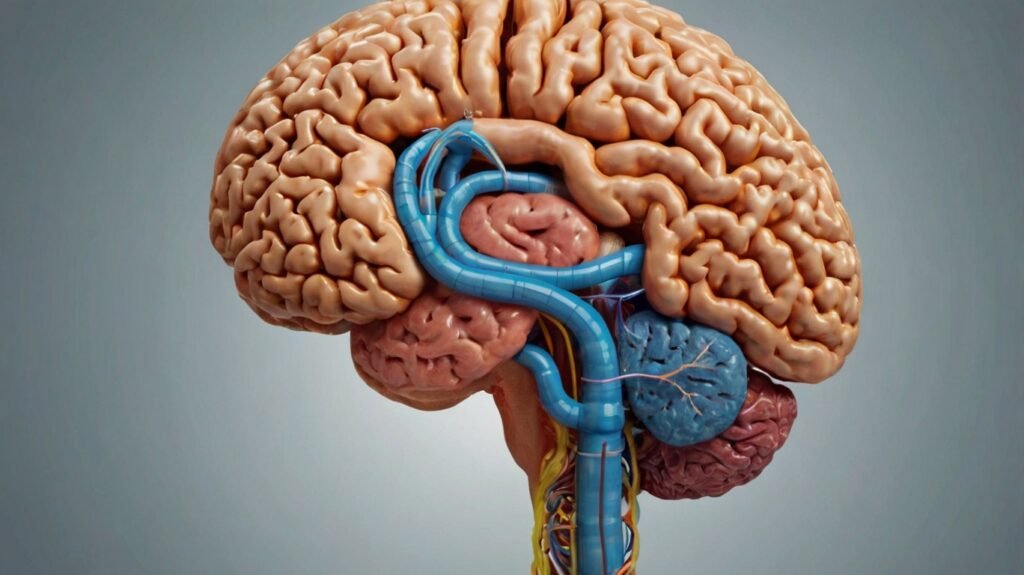

Have you ever felt “butterflies” in your stomach before a big event? Or lost your appetite during a stressful time? These feelings aren’t just coincidence—they’re a sign of the powerful connection between your gut and your brain. Let’s dive into this fascinating relationship and see how caring for your gut can actually help support better mental health.
Our body is full of communication systems, and one of the most talked-about lately is the gut-brain axis. This is the two-way connection between your digestive system (aka the “gut”) and your brain. They’re constantly talking to each other through a network of nerves, chemicals, and hormones. Think of it like a busy phone line that never shuts off.
Surprisingly, your gut does more than digest food—it also produces many neurotransmitters, which are chemicals that send messages in the brain. In fact, around 90% of your body’s serotonin—a key mood-regulating chemical—is made in the digestive system.
The gut and brain connect mainly through the vagus nerve, a long nerve that runs from your brain stem to your abdomen. This nerve helps control digestion, heart rate, and even mood. When your digestion isn’t happy, chances are your mind won’t be either.
The term “microbiome” might sound scientific, but all it means is the billions of bacteria living in your gut. Not all bacteria are bad—for the most part, you actually want them there! A healthy gut microbiome contains a balance of “good” and “bad” bacteria, and when things get out of whack, problems can arise.
Studies have shown that people with poor gut health often experience mental health challenges like anxiety, depression, and brain fog. But when the microbiome thrives, your mind often does too. Why? Because the gut bacteria help produce key neurotransmitters, manage inflammation, and regulate hormones—all essential for mood and brain function.
Here’s where things get really interesting. If your gut isn’t working well, it may cause or worsen mental health symptoms. Here are a few ways this connection plays out:
In short, if you don’t take care of your gut, your mental health could suffer.
Not sure if your gut is impacting your mood? Here are some common red flags to watch for:
If several of these sound familiar, your gut might need some TLC.
The good news? You can take small steps each day to improve your gut health, which may boost your mental well-being too. Here are a few effective (and easy!) strategies:
Fiber feeds your good gut bacteria. Try adding more fruits, veggies, whole grains, and legumes to your meals. Think berries, apples, oatmeal, beans, and brown rice.
Foods like yogurt, kefir, sauerkraut, kimchi, and kombucha are full of probiotics—good bacteria that support healthy digestion.
Too much sugar and junk food can throw your gut microbiome out of balance. Try to eat more whole, nutrient-rich foods instead of packaged snacks.
Water helps digestion run smoothly. It also supports the mucosal lining of your gut, which helps keep “bad” bacteria out.
Stress is one of the biggest enemies of both gut and mental health. Take time to do things that relax you—whether that’s walking, journaling, deep breathing, or spending time in nature.
Your gut has a clock too! Poor sleep can mess with your gut bacteria, while good sleep helps things heal. Aim for 7–9 hours a night.
Sometimes diet and lifestyle changes aren’t enough. If you notice that your mood or digestion is getting in the way of everyday life, it might be time to talk to a professional. A doctor, therapist, or registered dietitian can help you figure out what’s going on and guide you toward the right solutions.
For example, some people may benefit from working with a psychiatrist and a nutritionist together—two minds are often better than one, especially when it comes to the brain and gut.
Your gut is more than just a place where food gets digested—it’s an essential partner in your mental health journey.
If you’ve been feeling anxious, down, or foggy without clear cause, it might be time to look inward—literally. By nurturing your digestive system, you can support your mood, energy, and overall well-being.
Remember: Mental health starts from the inside out. And in many cases, that means starting with your gut.
Small changes can make a big difference. Listen to your body—it often knows what your brain needs most.
If you found this blog helpful, be sure to share it with someone who could use a gentle reminder to take care of their gut and mind.
Keywords: gut-brain connection, gut health, mental health, gut microbiome, brain and gut, ways to improve gut health, mood and digestion, improve mental wellbeing, vagus nerve, food and mental health